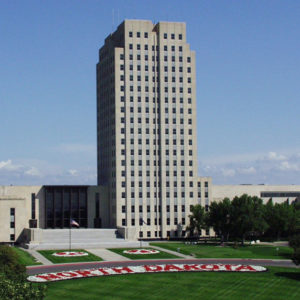Supporting ethics in politics is a no-brainer. But what if the approach threatens free speech? This is the question North Dakota voters will have to decide this fall, when they will vote on a constitutional amendment imposing new transparency and ethics standards. According to North Dakotans for Public Integrity, the group promoting the ethics amendment, North Dakota lags behind much of the country since it lacks an ethics board. However, the amendment itself may cause do more harm than good, say free speech proponents, who worry that it is unconstitutionally broad.
According to an analysis by the Institute for Free Speech (IFS), a non-partisan, pro-First Amendment group based in Virginia, the law appears to be “unconstitutionally vague and overbroad” to a level that would cause massive confusion for many industries and citizens while accomplishing little.
“Regulated speakers may be subject to extensive and intrusive requirements to report their funding sources akin to tracing the source of a river to the first drop of water,” wrote IFS Senior Fellow Eric Wang. According to Wang, it is unclear how for-profit corporations would comply with the amendment’s requirement to disclose the “ultimate and true source” of any sums of more than $200 spent “to influence” any statewide or legislative election or statewide ballot measure, “or to lobby or otherwise influence state government action.”
The wording of the proposed ethics amendment has already caught the attention of conservative commentators in North Dakota.
“By my reading of that measure, a private citizen starts a blog to advocate a point of view on certain bills during our legislative sessions they’d have to report any money they spent to the state,” writes columnist Rob Port, in a piece for the Grand Forks Herald. “The media would have to report money spent on their editorials taking a stand on legislation or regulations or campaigns or ballot measures.”
Despite portraying themselves as a bipartisan group of North Dakota residents, North Dakotans for Public Integrity has ties to major left-wing donors. When the group launched early this year, job postings on its website for canvasser positions referred back to Advanced Micro Targeting, Inc., a political consulting firm based in Las Vegas. The group is also affiliated with and funded by Represent.us, a national group pushing for transparency in political donations and lobbying restrictions.
Represent.us is continuing to promote the ethics amendment through social media and is asking people to join a local chapter in Fargo, ND. It is also pushing a similar measure in South Dakota.
North Dakota state law already requires campaign finance reporting for any advocacy for or against a political candidate or ballot measure. Republicans in the state legislature have pushed back against the amendment’s proposals, including the requirement that the state form an ethics board, arguing that the role is filed by the state Secretary of State and other officeholders. Meanwhile, the amendment text specifies little beyond the necessity of creating the board, offering little in the way of oversight, nor details about the standards needed to instigate a campaign finance investigation.
In short, the ethics amendment may be a solution in search of a problem.
“North Dakota’s current campaign finance and lobbying laws are already unclear. The initiative could raise serious First Amendment concerns because of the additional vague rules it appears to impose on citizens and groups that wish to speak about public matters and state government,” Wang concluded.

